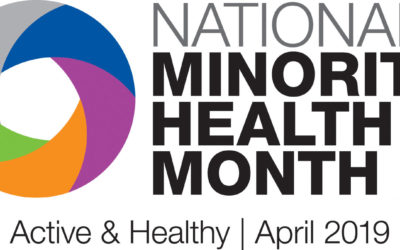SUPPORT MENTAL HEALTH AWARENESS MONTH
LEARN THE SIGNS, RECOGNIZE THE SYMPTOMS, GET HELP
A noted author once wrote, “People assume you aren’t sick unless they see the sickness on your skin.” This month, the National Alliance on Mental Illness (NAMI) and The Black Women’s Agenda, Inc. (BWA) invite you to join the “I’m Into Mental Health” campaign supporting Mental Health Awareness Month by becoming Inspired, Informed, and Involved.
Inspired: According to statistics compiled by NAMI and the World Health Organization, one in five adults and one in ten children in the United States experience a mental health condition at some point in their lives. In addition, approximately 450 million people around the world currently suffer from some form of mental illness. These figures do not account for the hundreds of millions of friends, family, and others who are also affected by a loved one’s mental health.
The good news is that the best treatments for serious mental illnesses today are highly effective; between 70 and 90% of individuals have significant reduction of symptoms and improved quality of life. However, in the past year, African Americans have only used mental health services at half the rates of their white counterparts. BWA believes that we are all vested in helping to see that those who need help, get help, and encourages everyone to speak up and speak out in support of mental health.
Informed: A mental illness is a condition that can impact an individual’s thinking, feelings, mood and, in some instances, how a person functions. Various factors may make people susceptible to experiencing mental health conditions. These can include genetics; environment; stress; lifestyle, and brain structure.
Among the many mental health conditions affecting many Americans are:
- Attention Deficit Hyperactivity Disorder – a developmental disorder which can cause issues relating to attention, hyperactivity, or impulsive behavior.
- Anxiety Disorders – anxiety that becomes overwhelming and influences a person’s life.
- Autism Spectrum Disorder – a developmental disorder that adversely impacts one’s ability to socialize and communicate.
- Bipolar Disorder – dramatic high-to-low swings in a person’s mood, energy or thinking.
- Borderline Personality Disorder – severe and unstable mood swings, low self-esteem, impulsive behavior, and instability that often affects relationships.
- Depression – Ongoing despondency or dejection.
- Eating Disorder – a preoccupation with food and weight.
- Obsessive-Compulsive Disorder – Repetitive, unwanted, intrusive thoughts (obsession), and irrational, excessive urges to do certain actions (compulsions).
- Posttraumatic Stress Disorder – A disorder resulting from traumatic events, i.e. military combat, assault, accident, or natural disaster.
- Schizophrenia – A disorder that causes people to lose touch with reality and often presents itself in the form of hallucinations, delusions, and severely confused thinking or behavior.
Involved: Here are some steps that you can take to help raise awareness about the importance of mental health.
- Learn How to Help Someone in a Crisis – i.e. bring them to the nearest hospital or emergency room; call 911, or the National Suicide Prevention Lifeline (1-800-273-8255). You can also seek crisis support online at www.suicidepreventionlifeline.com.
- Share Your Story – Tell others about how your life has been affected by a mental health issue. People and families need to know that they are not alone and your story could have a powerful impact on others.
- Understand the Power of Language and How It Can Contribute to Stigma – Sometimes, commonly used phrases such as “crazy,” “mental,” “OCD” or “psycho” can keep those in need of care from seeking assistance. Words matter and they can hurt. Think about what you say before you say it.
- Take Care of Yourself – Experts advise that making sure that you are meeting your own needs and “managing” yourself helps support mental health and relationships. Compassion fatigue is real, and helping or wanting to help others experiencing emotional stress can take its toll on family and friends. Recognize that the best way to help others is to pay close attention to your mental, physical, and spiritual health.
- Join the Conversation – Help spread the word about Mental Health Awareness Month and the “I’m Into Mental Health” campaign on Facebook, Twitter, Instagram, and other social media. Here are some of the hashtags supporters are using to promote conversation:
- #MHM2017
- #mentalhealth
- #MentalHealthAwareness
- #MentalHealthMatters
- #endthestigma
For more information about Mental Health Awareness Month, visit https://www.nami.org.
♦♦♦
Sources:
National Alliance on Mental Illness, https://www.nami.org
World Health Organization. The world health report 2001 – Mental Health: New Understanding, New Hope
OTHER NEWS
April Is National Minority Health Month
This April, join The Black Women’s Agenda, Inc. in celebrating National Minority Health Month. This year, the U.S. Department of Health and Human Services Office of Minority Health (OMH) will join partners in raising awareness about the important role an active lifestyle plays in keeping us healthy. Their theme for the 2019 observance is Active & Healthy, which will “allow OMH and minority health advocates throughout the nation to emphasize the health benefits of incorporating even small amounts of moderate-to-vigorous physical activity into our schedules.
Black Women Focus on Aging Mastery
The Black Women’s Agenda recently hosted a summit themed, “I Am the Change: Living Your Best Life at Every Age,” at Morgan State University in Baltimore, MD. Sponsored by AARP and featuring leading experts in the fields of health, education, and economic security, the event focused on the importance of health and wellness in the aging process.
“Too often black women are focused on everyone and everything except themselves,” said panel moderator Dr. Rockeymoore Cummings. “Our concern for and work on behalf of our families and communities competes with our ability to implement self-care strategies that support our physical, emotional, spiritual, and socioeconomic wellbeing.”
March is Women’s History Month
This March, join The Black Women’s Agenda, Inc. as we celebrate Women’s History Month. Congress first declared March as Women’s History month in 1987. Since then, every year there’s a Presidential Proclamation to announce the month and to honor women who have made a notable impact in history.
According to the National Women’s History Alliance, “In February 1980, President Carter issued the first Presidential Proclamation declaring the Week of March 8th 1980 as National Women’s History Week. In the same year, Representative Barbara Mikulski, who at the time was in the House of Representatives, and Senator Orrin Hatch co-sponsored a Congressional Resolution for National Women’s History Week 1981. This co-sponsorship demonstrated the wide-ranging political support for recognizing, honoring, and celebrating the achievements of American women.
© 2025 The Black Women’s Agenda, Inc. All Rights Reserved. Privacy Policy








